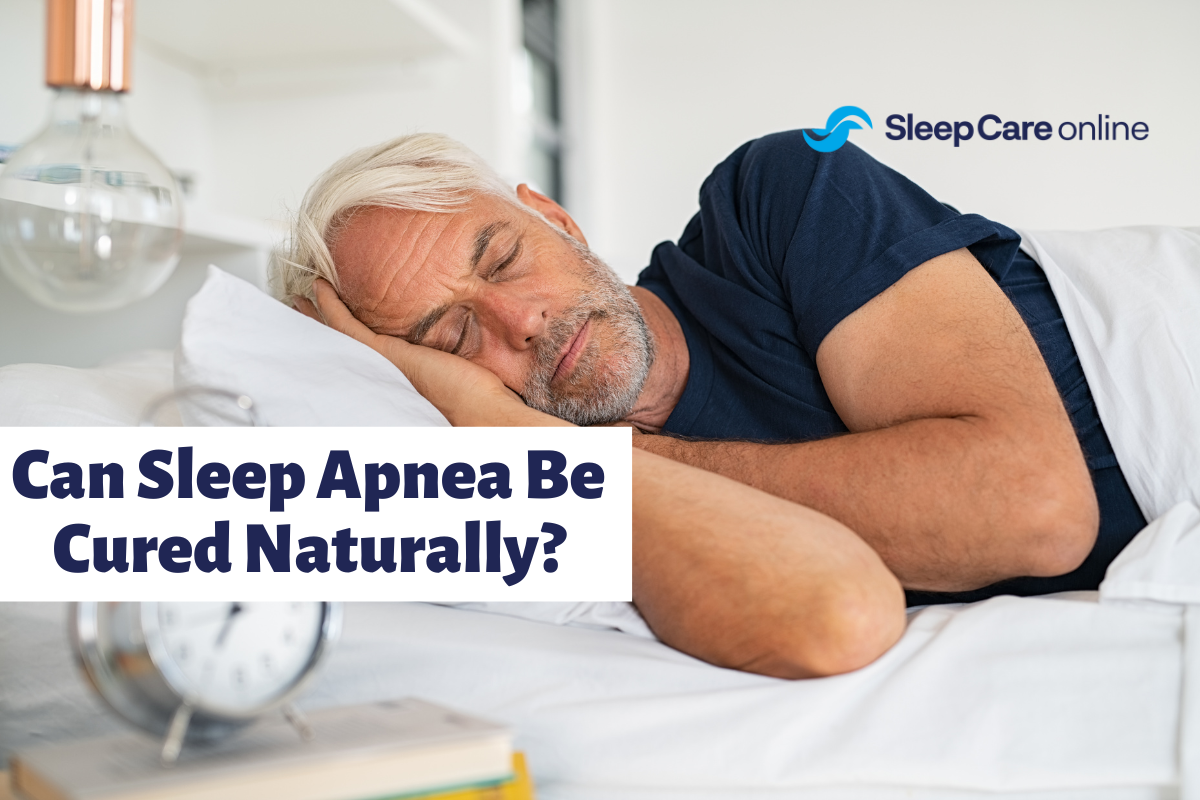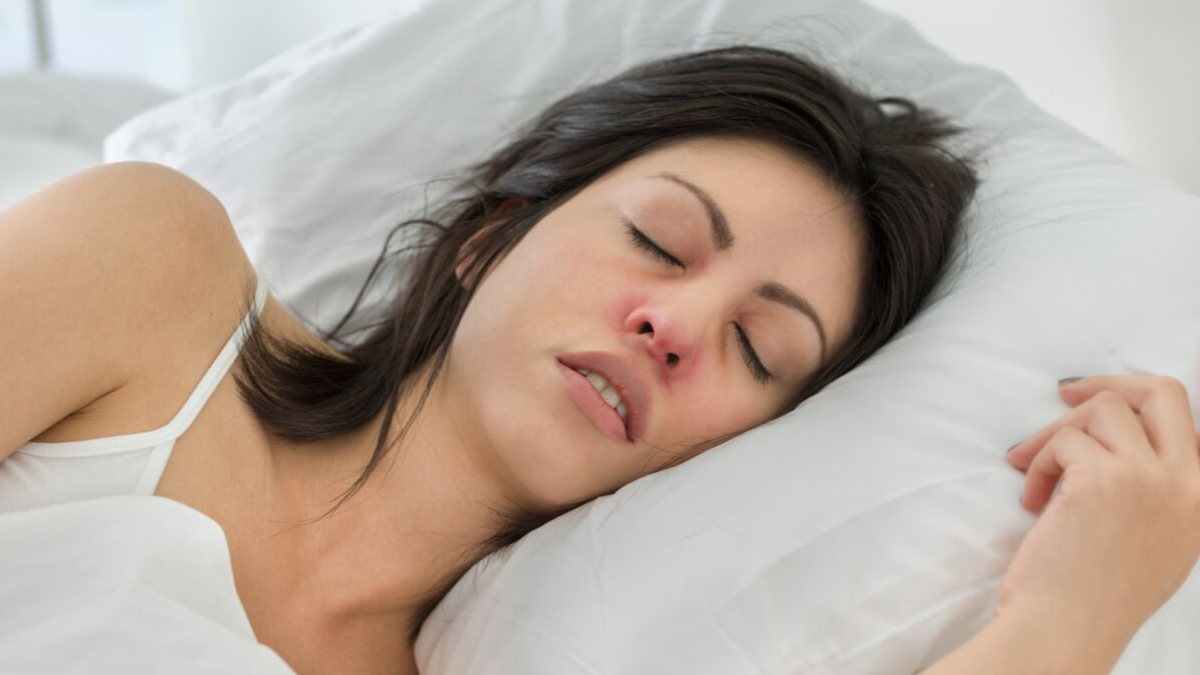
Unlike the common cold that gets better with prescribed medication, obstructive sleep apnea (OSA) is a chronic sleep disorder. Lifestyle changes may help improve symptoms, but successful CPAP therapy is a necessary part of your long-term health and well-being.
What Causes Sleep Apnea?
OSA is caused when breathing repeatedly stops for brief periods throughout the night. This happens due to muscles in the throat relaxing and then collapsing to block the airway. In response to the lack of oxygen, the brain tells the body to jolt awake. With OSA, these “apnea” events can occur for up to 10 seconds at a time and up to 30 times an hour while you sleep at night.1 This disorder results in decreased oxygen in the blood, which in turn may result in cardiovascular complications. CPAP therapy pushes pressurized air into the airway to prevent apneas.
Can Obstructive Sleep Apnea Be Cured?
Sleep apnea is a chronic condition. Mild cases can be improved with lifestyle changes, such as weight loss, an increase in physical activity, or quitting smoking and drinking. However, in all cases, CPAP therapy remains the gold standard for treatment. Committing to treating this condition is the best way to mitigate long-term health complications and improve your quality of life.
Do People Die from Sleep Apnea?
Untreated sleep apnea increases the risk of death. A study in SLEEP found that people with this condition have more than three times the risk of death from cardiac arrest.1 Research also shows that severe sleep apnea can even lead to premature death due to repeated drops in blood oxygen levels. This condition has been linked to long-term health complications such as high blood pressure, heart disease, stroke,2 and Type 2 diabetes.3 In the short-term, untreated sleep apnea impacts one’s ability to focus or concentrate, and react, and causes daily headaches. There has been a notable increase in the risk of motor vehicle accidents in those with untreated sleep apnea.
Does Sleep Apnea Get Worse Over Time?
If untreated, this disorder can worsen over time, and even lead to premature death. Proper treatments, such as CPAP therapy, coupled with lifestyle changes can greatly reduce the health complications associated with sleep apnea.
How Can I Fix Sleep Apnea Naturally?
Along with proper treatment, there are lifestyle changes you can focus on to minimize your OSA symptoms.
- Maintain a healthy weight. Obesity can contribute to apneas that result in airways closing and the narrowing of nasal passages.
- Avoid alcohol and smoking as these habits aggravate OSA. Healthy living habits directly improve your OSA.
- Change sleep positions. With the help of a flat cushion or other devices, sleeping on one’s side can significantly keep airways open because it relieves pressure on the chest and diaphragm.
- Treat Nasal Congestion. Using a nasal spray or breathing strips while you sleep can help lessen snoring and improve breathing if you have sinus or nasal congestion.
- Acupuncture. One of the few alternative medical practices that have the potential for treating sleep apnea is acupuncture. But, a limited percentage of patients have been enrolled in the majority of research examining the efficacy of acupuncture as a potential therapy.
- Herbs. There is no proof that any herbal cure may assist treat this position, even though herbs like passionflower and valerian are occasionally advised in this regard.
What Sleep Position is Best for Sleep Apnea?
Studies show that sleeping on your back can contribute to increased apneas throughout the night.4 Sleeping on your side can help keep airways open.
Treatments For Sleep Apnea
- Continuous positive airway pressure therapy (CPAP) – This is the most successful therapy for moderate-to-severe OSA symptoms. CPAP equipment often includes a mask you wear while sleeping and a CPAP machine attached to a tube. Air is continually forced through the mask by the machine, which helps maintain the airway opening as you sleep.
- Other airway pressure devices – The other airway pressure devices are BiPAP and Auto-CPAP (APAP). In a BiPAP machine, there are two different air pressures while exhaling and inhaling. An APAP machine can automatically increase and decrease its air pressure according to the patient’s needs.
- Oral Appliances – Oral appliances prevent the airway from collapsing by retaining the tongue and the lower jaw. Patients who have problems using CPAP machines may choose to use oral appliances.
Want To Know If You Have Sleep Apnea?
The first step in treating this condition is identifying if you have the condition. By purchasing the Complete Care Package for only $219 from Sleep Care online, you will partake in an affordable and convenient sleep test from home. Here’s how it works:
- With the Complete Care Package, schedule a 10-minute telehealth visit with a healthcare provider to discuss your symptoms, upcoming sleep study, test results, and treatment options.
- A multi-night, disposable home sleep apnea test is mailed to your home to be completed at your convenience.
- A physician analyzes the sleep data and provides a prescription if needed.
- Schedule an optional follow-up appointment (additional fee applies).
- We connect you to sleep experts who can offer customized sleep therapy options, assistance in equipment purchase, and initial set-up.
Ready to get started? Call our knowledgeable customer care staff at 866.465.4478 or email us at contact@sleepcareonline.com
References:
- John Hopkins Medicine. The dangers of uncontrolled sleep apnea. Accessed November 2019.
- American Sleep Apnea Association. Stroke Awareness Month: Untreated sleep apnea and stroke. Accessed November 2019.
- Doumit J, Prasad B. Sleep apnea in Type 2 diabetes. Diabetes Spectrum. 2016 Feb;29(1):14-19.
- Joosten SA, O’Driscoll DM, Berger PJ, Hamilton GS. Supine position related obstructive sleep apnea in adults: pathogenesis and treatment. Sleep Med Rev. 2014 Feb:18(1):7-17.




